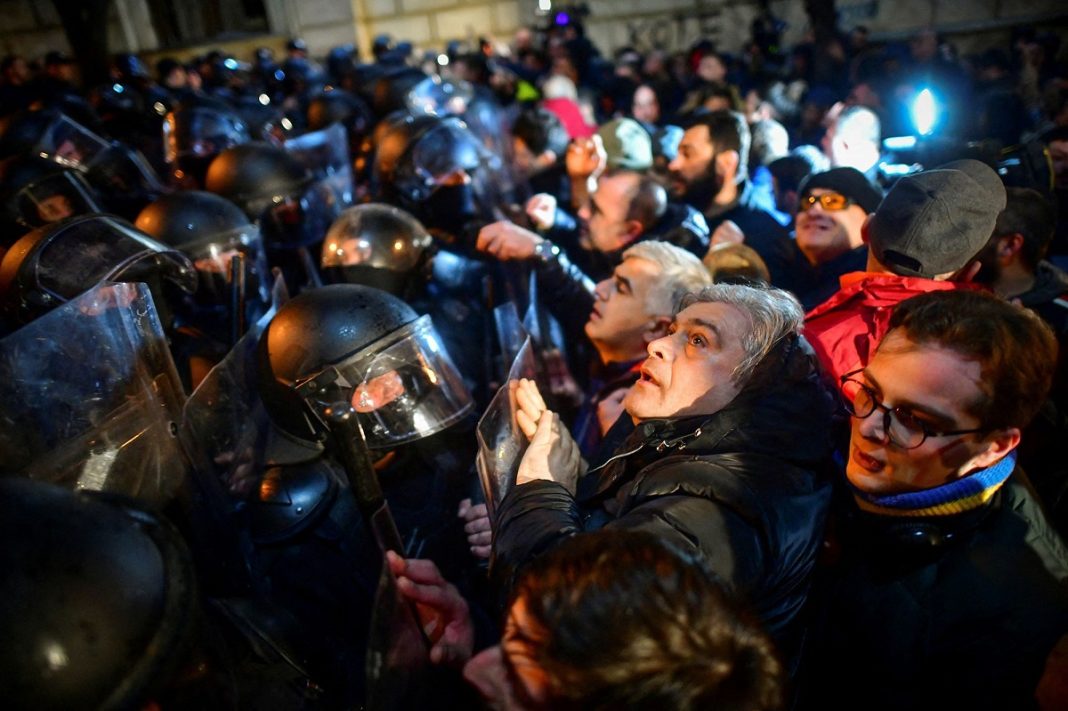According to local media reports, police used rubber bullets, tear gas and water cannons against the protesters. The authorities said appropriate force was used after riot officers were attacked with incendiary projectiles.
Opposition activists have accused the government of wanting to pass a “Russian-style” law on foreign agents, requiring any organization receiving more than 20% of its funding from abroad to register as such. The Russian law, enacted in 2012, was itself based on the American Foreign Agents Registration Act (FARA), passed in 1938.
President Salome Zurabishvili addressed the nation from the US, where she is currently visiting, voicing support for the protest and vowing to veto the bill if it passes. Zurabishvili was elected in 2018 with the backing of the ruling Georgian Dream party, but has since fallen out with party leader Irakli Kobakhidze and PM Irakli Garibashvili.
“The Georgian Parliamentary promotion of Kremlin-inspired laws is incompatible with the clear desire of the people of Georgia for European integration and its democratic development,” the US embassy in Tbilisi announced in a statement.
The bill “raises real questions” about Tbilisi’s commitment to “Euro-Atlantic integration,” the embassy noted, adding that if it passes, it would “damage Georgia’s relations with its strategic partners and undermine the important work of many Georgian organizations helping fellow citizens.”
Washington might impose sanctions against the Georgian government over the proposed law and the handling of the protests, State Department spokesman Ned Price told reporters on Tuesday.
Tbilisi has found itself under tremendous pressure from Washington and Kiev to open a “second front” in the conflict against Russia, but Georgia has so far resisted doing so. A number of Georgians have volunteered for the Ukrainian military, but the government maintains its neutrality.
The US backed the ‘Rose Revolution’ in Tbilisi in 2004, bringing to power Mikhail Saakashvili. After Georgian Dream won the 2012 election, Saakashvili fled the country and worked for the Ukrainian government for several years. He returned to Georgia in October 2021, and was promptly arrested after calling for an uprising against the government.
